Past Courses 2015-2106
Spring 2016 Undergraduate Humanities Courses
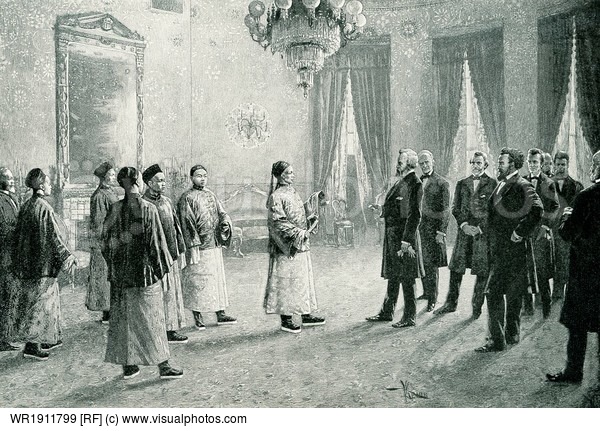 HUM 370-4-20: China and the West
HUM 370-4-20: China and the West
(HISTORY 393-0-22)
Melissa Macauley (History)
TTh 3:30 - 4:50 pm
Fulfills Distro 4 (Historical Studies)
Modern world history is a story of cultural, economic, and biological interchange. This seminar explores some of the ways people and things circulated between China and “the West” (primarily Great Britain but also continental Europe and, to a lesser extent, the United States) from roughly 1839 to the mid-twentieth century. The course primarily will focus on the Euro-American influence on modern China, but we will not ignore the question of how China contributed to the transformation of the modern West. We will concentrate on particular topics (intellectual and scientific exchange, the transformation of women’s lives, the opium trade, the missionary enterprise, war, and treaty ports as sites of cultural hybridity and change). Students will also write a term paper on a particular topic of interest to them.
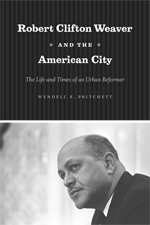 HUM 370-4-21: Politics, Society, and Biography in the United States from the New Deal to the Great Recession
HUM 370-4-21: Politics, Society, and Biography in the United States from the New Deal to the Great Recession
(SOCIOL 376-0-22 / POLI_SCI 390-0-21)
Anthony Chen (Sociology)
MW 2:00 - 3:20 pm
Fulfills Distro 4 (Historical Studies)
The course aims to give Northwestern undergraduates a foundation of knowledge and critical reasoning skills that will enable them to develop and refine their own understanding of how and why social and economic policy in the United States has developed historically in the ways that it has—and not in other ways it might have developed. It will focus on a period of time that begins with the New Deal and ends with the Great Recession. The main readings for the course will consist of selected biographies of major social and political figures. These biographies are meant to provide a uniquely valuable window into the policy-making process. Among other graded assignments, students will be asked to write a term paper on a significant topic in American political development using biographical materials as a primary source or taking a biographical approach.
 HUM 370-4-22: Apocalypse: Environment, History, Science and Religion in the West
HUM 370-4-22: Apocalypse: Environment, History, Science and Religion in the West
(HISTORY 392-0-30 / ENVR_POL 390-0-23)
Sheila Wille (Environmental Humanities)
MW 9:30 - 10:50 am
Fulfills Distro 4 (Historical Studies)
The theme of the “end of days” threatens to overwhelm us in popular media; even the United States government is capitalizing on the obsession with the “zombie” apocalypse to encourage emergency preparedness. Apocalypses are not just exciting stories, they have long roots in the Western tradition, particularly in Christianity, science, and the Enlightenment, and they have many uses. They can narrate a great victory for the morally righteous, become a foil for a critique of enlightenment or industrial progress, and unveil the gateway to utopia. Apocalyptic stories also often reinforce previously held assumptions about humans, nature, and human nature, holding within them a regenerative moment when humanity (or some select part of it) could finally get things right. As a result, the end of days makes an excellent category of historical analysis.
In this class, we will take a long view on the history of Western apocalypse stories both providential and dystopian. Our guiding query will be always to ask: what work did these narratives do for people in different historical contexts? What can the examination these narratives tell us about history in these various times and places? Our reading will focus heavily on the histories of empire, science, religion, and nature/environment in Europe (particularly Britain) and America. Specific themes will include the link between the revolutionary and the apocalyptic, human and divine agency, limits/scarcity and growth/abundance, utopias, concepts of time, and history.
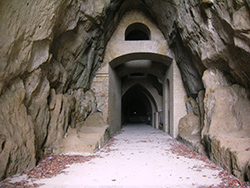 HUM 370-6-20: Death and Life's Journey in Roman Literature
HUM 370-6-20: Death and Life's Journey in Roman Literature
(CLASSICS 350-0-1)
John Schafer (Classics)
MW 11:00 am - 12:20 pm
Fulfills Distro 6 (Literature and Fine Arts)
A metaphor so irresistible it's in constant danger of destroying itself: our "way through life" stops whispering "life is like travel" to us when "way through life'" becomes just the way you talk about life (see what I did there?). But what happens when the metaphor is reanimated? And how can we tell it's there? Does it matter anyway?
In this course we will follow the path of these questions through the people whose city all paths (well, roads) proverbially lead to. How do the poets Catullus, Virgil, and Horace, and the prose authors Seneca and Apuleius use motifs of journeys and transportation as figurations of life? What lessons emerge? Is it really all about the journey after all? Let's go find out.
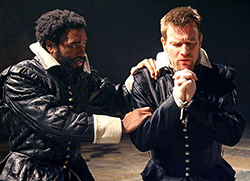 HUM 370-6-21: Shakespeare In Our Time
HUM 370-6-21: Shakespeare In Our Time
(ENGLISH 339-0-21)
Peter Erickson (Theatre/African American Studies)
TTh 2:00 - 3:20 pm
Fulfills Distro 6 (Literature and Fine Arts)
In the context of the 400th anniversary of Shakespeare’s death, this course undertakes close reading of selected plays divided into three distinct sections, each of which raises a different set of questions and thus presents a different vantage point. The first cluster of plays focuses on examples of “Performing Race in Shakespeare.” The second group on “Shakespeare’s Women” explores the range and variety of the roles and identities available to female characters. The third section examines how “Shakespeare’s Endings” are constructed in generic forms from comedy to tragedy and inquires to what extent these conclusions resolve the problems that have emerged over the course of an individual drama. Ultimately our goal will be to combine these three perspectives as overlapping approaches that lead to a comprehensive discussion of the complexities of Shakespeare’s work. Finally, the title “Shakespeare in Our Time” asks us to reflect on our contemporary position with regard to Shakespeare as an author who is located in both past and present. How can the two points—1616 and 2016—on the long historical timeline be linked without being simply equated?
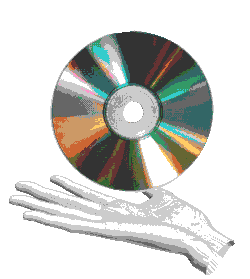 HUM 370-6-22: Art, Writing, Technology: New Approaches to the Digital Humanities
HUM 370-6-22: Art, Writing, Technology: New Approaches to the Digital Humanities
(ENGLISH 311-0-20)
Daniel Snelson (Digital Humanities/English)
TTh 3:30 - 4:50pm
Fulfills Distro 6 (Literature and Fine Arts)
In 1882, Friedrich Nietzsche used his typewriter to declare: “Our writing tools are also working on our thoughts.” How might we reconsider the history of art and literature in a time when our thoughts are being worked over by iPhones, YouTube, and Google? Can we rewrite this archive using tactics found in contemporary art and poetry? This class follows emerging trends in art and writing to construct new approaches to historical objects that are equally likely to appear on Soundcloud, in a PDF, through online videos, or even on Facebook. Studying the digital humanities alongside modes of contemporary art and letters, we’ll reimagine historical works through today’s emerging forms and formats. Through readings and class visits from artists and poets, we will explore works that translate established forms into a variety of new media formats. How might Twitter facilitate works of art? What does YouTube demand of poetry? Using a combination of seminar conversations and collaborative workshops, we’ll engage in a series of weekly experiments that attempt to reconfigure the history of art and literature through the filter of contemporary writing tools. No previous training in art, poetry, or new media is required.
 HUM 395-0-1: Critical Internet Studies
HUM 395-0-1: Critical Internet Studies
(ENGLISH 385-0-21)
Jim Hodge (English/Humanities)
TTh 2:00 - 3:20 pm
This course examines the varieties of audio/visual discourse native to and sustained by the Internet and the World Wide Web. Topics may include memes, selfies, supercuts, animated .gifs, comments, search engines, trolling, casual games, etc. While "sharing" and "connection" typically rule discussions of what networks do or enable, our aim will be to analyze how web-based genres promote affects that diverge from conventional accounts but nonetheless constitute much of networked life, e.g. boredom, cuteness, disinhibition, etc. We will proceed by pairing readings in critical theory and new media studies alongside artworks. Readings by Kant, Cavell, Ngai, Warner, Cohen, Dibbell, Nakamura, Jagoda, Hansen, Starosielski, Richmond, and others. Artworks to be analyzed include a novel (Dennis Cooper's The Sluts), a film (Frances Stark's My Best Thing), and web-based art and data visualization (Thomson and Craighead's Beacon, Kamvar & Harris' We Feel Fine), and a game (David OReilly's Mountain).
Winter 2016 Undergraduate Humanities Courses
HUM 225: Media Theory
Jim Hodge (English)
MW 11:00 am - 12:20 pm
Fulfills Distro 6 (Literature and Fine Arts)
How do media impact our sense of such fundamental concepts as personhood, social life, and time and space? How do new technologies transform sensory experience at different moments in history? This course provides an introduction to the field of theoretical writings within the humanities addressing the nature of media and the role of technology in twentieth- and twenty-first century culture. We will pay close attention to the work of key media theorists, including (but not limited to) Walter Benjamin, Marshall McLuhan, and Donna Haraway. We will also analyze works of art, sound, film, and literature in order to catalyze, test, and expand our sense of how media matter. Course requirements include two exams and several short papers.
HUM 260: Alternatives: Modeling Choice Across the Disciplines
Gary Saul Morson (Slavic Languages and Literatures)
Morton Schapiro, President of Northwestern (Economics)
TTh 12:30 – 1:50 pm
Fulfills Distro 5 (Ethics and Values), Distro 6 (Literature and Fine Arts), or Interdisciplinary Distro
This course will offer a cross-disciplinary approach to the concept of alternatives and choices. At any given moment, how many alternatives are possible? Is there really such a thing as chance or choice? On what basis do we choose? How does our understanding of the past affect the future? Can we predict the future? Professor Gary Saul Morson, a specialist in literature, and Professor Morton Schapiro, a labor economist specializing in the economics of higher education, will themselves offer alternative approaches to these questions based on the presuppositions of their respective disciplines. The class will be structured as a debate with no single right answer to each question. Readings will be taken from literature, philosophy, economics, history, evolutionary theory, and other disciplines. Enrollment is limited in this popular course; professors will select students by a 150-word essay application, due Dec. 9 (extended deadline). Submit the essay to officeofthepresident@northwestern.edu with “HUM260 Admission 2016” in the subject line. See CAESAR for more details.
HUM 325-4: Digitizing Folk Music History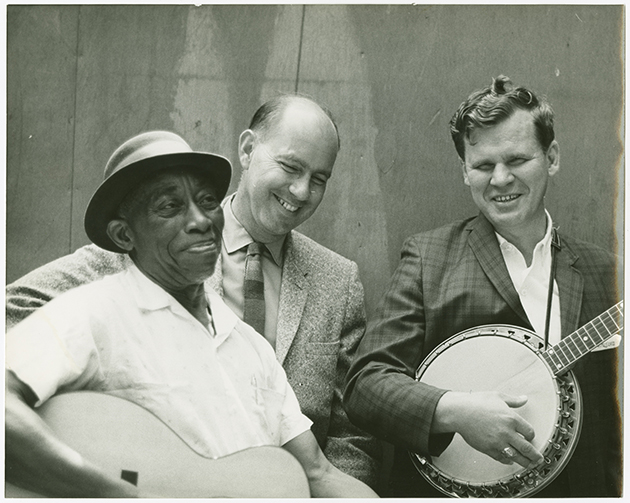
Michael Kramer (History)
TTh 3:30 - 4:50 pm
Fulfills Distro 4 (Historical Studies)
The United States folk music revival is typically thought of as an antimodern, even a Luddite, movement. Acoustic guitars, camp fires, overly sincere singers, and "Kumbaya" politics are the clichés many call to mind. To study it through digital means, however, reveals important connections between the history of the revival and issues of technology, culture, and poltiics in the modern world. In this research seminar, we examine the history of the US folk music revival through readings, audio listening, documentary films, seminar discussions, and, most of all, extensive digital analysis to investigate these connections.
Working in platforms such as Omeka and WordPress, with tools ranging from Audacity sound editing software to mapping, annotation, and timeline programs, we use the archives of the Berkeley Folk Music Festival (in Northwestern's Special Collections), the Old Town School of Folk Music (in Chicago), and the Alan Lomax Collection (online) to probe what was at stake in the folk revival in relation to American culture and politics; questions of race, class, gender, age, and region; and the strange workings of music-making, memory, and power. As we do so, we ask how digital technologies might help us to interpret history more meaningfully; simultaneously, we explore how both the folk revival itself and the methods of historical study might be crucial to understanding our contemporary digital moment more effectively.
Each student will be evaluated based on class participation, weekly digital mini-project experiments, presentations, and a final multimedia interpretive digital history podcast project that is the multimedia equivalent of a 15-20 page analytic essay based on original research.
HUM 325-6: Shakespeare’s Circuits: Global, Local, Digital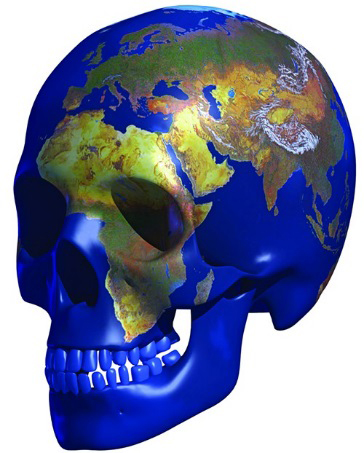
Wendy Wall (English and Humanities)
Will West (English)
TTh 2:00 - 3:20 pm
Fulfills Distro 6 (Literature and Fine Arts)
What can you do with Shakespeare’s plays? Perform them, behold them, read them, interpret them, imitate them, adapt them? Track them as they travel the globe and mutate into new forms? Shakespeare’s infinite variety—in diverse applications—has travelled everywhere: in Renaissance London and Germany, nineteenth and twentieth century India, South Africa before and after apartheid, Israel, modern China. In this class we will reflect on the unique position of Shakespeare in cultures of the world at every scale, from local to global, and through a range of media—from the digital to traditional forms like print, theater, or opera. Learning in this course will take place in the classroom, the computer lab, and spaces for experiencing Shakespeare around Chicago, from rare book rooms at the Newberry Library, to the Lyric Opera and the Chicago Shakespeare Theater. Students will discuss The Tempest, Othello, and The Merchant of Venice not only in Shakespeare’s time but across the globe in many eras and in many media (visual arts, film, print, and performing arts). Our study will culminate with students collaborating to create a digital interactive map of Shakespeare’s influences over time and across the globe.
HUM 370-4: Popular Education in the 19th Century US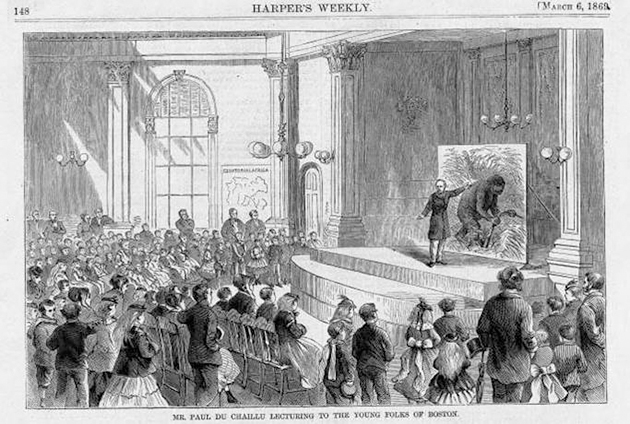
Angela Ray (Communication Studies)
MW 9:30 – 10:50 am
Fulfills Distro 4 (Historical Studies)
How did nineteenth-century Americans create intellectual culture? What counted as desirable knowledge? Who could possess such knowledge, and how was knowledge obtained and shared? In this course we will study the theory and practice of education in the nineteenth-century United States, with a special focus on how people who lacked access to formal educational institutions found ways to learn. We will read scholarship from communication, history, and American studies and will analyze many primary source materials, such as widely circulated textbooks, posters advertising public lectures, and the unpublished minutes of debating clubs and literary societies. Students who complete the course successfully can expect to have a deeper understanding of alternative modes of learning, nineteenth-century U.S. culture, and analytic approaches to the study of communication in history.
HUM 370-5-20: Thought Experiments: Ways of Knowing in Neuroscience and the Humanities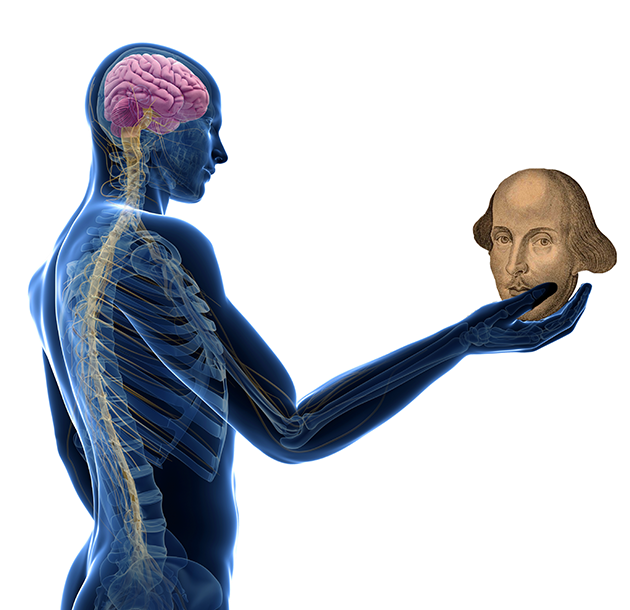
Susie Phillips (English)
Indira Raman (Neurobiology)
TTh 11:00 am – 12:20 pm
Fulfills Distro 5 (Ethics and Values) or Distro 6 (Literature and Fine Arts)
Until a couple of centuries ago, scholars made no distinction between Science and Literature, or Science and Art. Science, scientia, was the word for knowledge in the broadest sense—all subjects of inquiry. Poets wrote scientific treatises, Chaucer was known as a master of alchemy as well as the "fadir of Englyshe poesie" and figures we think of today as hard-core scientists, like Johannes Kepler, were practitioners of the creative arts, writing science fiction as well as scientific treatises. What would it be like to revive this older paradigm, to reintegrate these supposedly disparate ways of thinking about thinking into a single classroom? Can the varied intellectual explorations of Thought from neuroscientific, literary, and artistic perspectives be harnessed and brought to bear on core issues that interest those seeking scholarly understanding of the human experience—namely, perception, memory, emotions, ethics, knowledge and madness? In this class, we will read literary texts, including Shakespeare’s Hamlet, Jane Austen’s Sense and Sensibility, and William Faulkner’s The Sound and the Fury, as well as writings by neuroscientists, including chapters from David Linden’s The Accidental Mind and Antonio Damasio’s The Feeling of What Happens and short scientific articles on animal behavior, to explore different perspectives on what constitutes thought; what free will is and isn’t; and what tools we have for making sense of feelings, logic, perception, and memory.
HUM 370-5-21: Social Epistemology
Jennifer Lackey (Philosophy)
TTh 11:00 am – 12:20 pm
Fulfills Distro 5 (Ethics and Values)
Social epistemology is the study of the social dimensions of knowledge. In this course we will examine central issues in this area of philosophy with special focus on how to understand the knowledge attributed to groups (such as corporations and universities), what norms govern our assessment of the credibility of others, the extent to which people can be the victims of testimonial injustice, and the role that ignorance plays in epistemic culpability. The abilities to think, read, and write critically, to develop and defend arguments, and to appropriately justify one’s views will be emphasized.
HUM 370-6-20: Scoring the Avant-Garde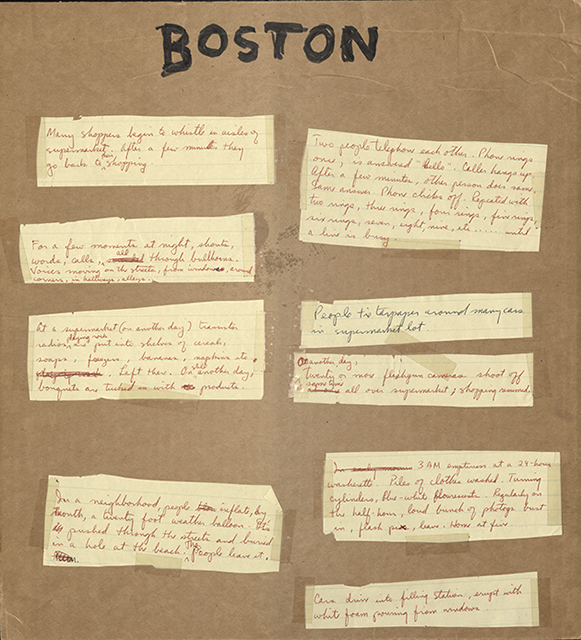
Amanda Graham (Dance Studies)
TTh 2:00 - 3:20 pm
Fulfills Distro 6 (Literature and Fine Arts)
In this course, students will examine Charlotte Moorman, a critical figure in the avant-garde movement, as well as her avant-garde network and art historical influence. Coordinated with A Feast of Astonishments: Charlotte Moorman and the Avant-Garde, 1960s–1980s at the Mary and Leigh Block Museum of Art, the class will study visual and performance artists such as Dick Higgins, composer La Monte Young, choreographer Ann Halprin, and architect Lawrence Halprin, who proposed that scores extend “in all fields of human endeavor.” Inspired by these figures and their works, and by the wide array of scores in Northwestern Library’s John Cage Notations Collection, students will analyze the score as an independent graphic art object and a contingent, preparatory step toward a performance. While this course is primarily academic, and will involve close readings of art historical texts including Hannah Higgins’s Fluxus Experience and Liz Kotz’s Words To Be Looked At: Language in 1960s Art, it is also composed of an experiential component where students create and perform or present their own scores.
HUM 370-6-21: Imagining Immigrant America in the 21st Century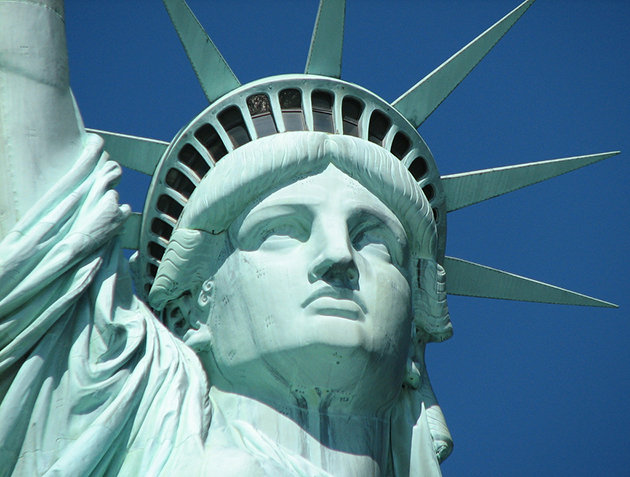
Ana Aparicio, Anthropology and Latino Studies
TTh 11:00 am – 12:20 pm
Fulfills Distro 6 (Literature and Fine Arts)
“Give me your tired, your poor, your huddled masses yearning to be free.” Those lines from Emma Lazarus’ sonnet, “The New Colossus,” are well known to most Americans. Alongside the Statue of Liberty (on whose pedestal Lazarus’ words are etched) and Ellis Island, they are often called upon by those seeking to point out that the United States is a nation of immigrants. However, popular discourse and policies regarding immigration to the United States have consistently vacillated between welcoming newcomers and rejecting “the immigrant menace.” Throughout the 19th and 20th centuries, while some groups of immigrants were depicted favorably as new Americans and offered important forms of support, others were vilified and marked as forever foreign. This course will explore contemporary immigration, particularly how immigrants and immigration processes are portrayed in the public sphere. We will use ethnographic work, fiction, autobiography, popular press accounts, politicians’ campaign speeches, and film to understand the significance of particular narratives of immigrant America in the 21st century.
HUM 397: Exhibiting Antiquity: The Culture and Politics of Display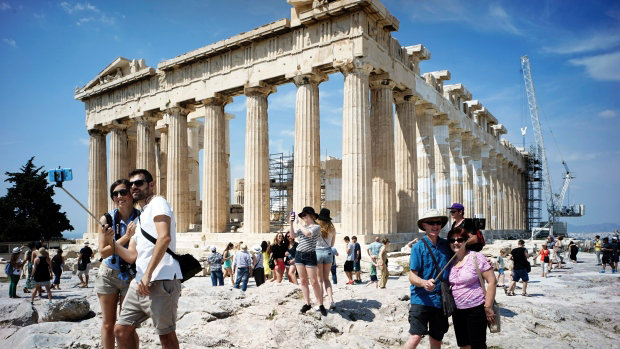
Ann Gunter (Classics, Humanities and Art History)
TThu 9:30 - 10:50 am
Fulfills Distro 4 (Historical Studies), Distro 6 (Literature and Fine Arts), or Interdisciplinary Distro
How do institutions such as museums, websites and archaeological sites developed as tourist destinations shape and construct our notions of the past? How are these institutions enmeshed with broader cultural and political agendas regarding identity and otherness, the formation of artistic canons, and even the concept of ancient art? This course explores modern strategies of collecting, classifying, and displaying material culture from ancient Egypt, the Middle East, Greece, and Rome, both in Europe and the United States and in their present-day homelands.
The course approaches the construction of ancient Mediterranean, Egyptian, and Near Eastern art through modes of reception over the past two centuries. By analyzing collection and display practices, it seeks to understand both the development of modern scholarship in ancient art and the intersection of institutional and scholarly programs. Topics examined include the historical development of modern displays devoted to ancient civilizations in public and private museums, notions of authenticity and identity, issues of cultural heritage and patrimony, temporary and “blockbuster” shows, virtual exhibitions and museums, and the archaeological site as a locus of display. This course will include field trips to Chicago-area museums.
Fall 2015 Undergraduate Humanities Courses
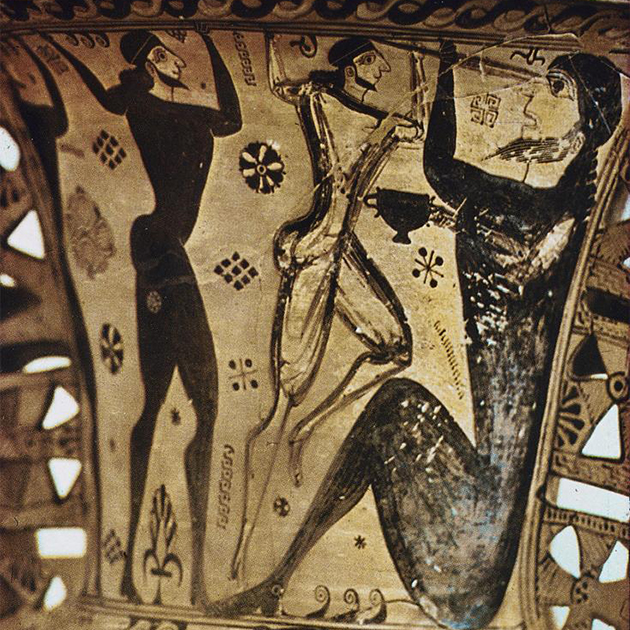 HUM 205: THE WORLD OF HOMER
HUM 205: THE WORLD OF HOMERProfessor Ann Gunter (Classics, Art History, and Humanities) TuTh 11:00-12:20
What do we know of the world inhabited by the heroes of Homer’s epic poems, the Iliad and the Odyssey? Do the poems describe a largely imaginary realm created by their author, or do they reflect a particular period of ancient Greek history—and if so, which one? This course explores the society, economy, and culture of Iron Age Greece with special emphasis on the Geometric and early Archaic periods, emphasizing what scholars have learned through archaeological discoveries along with study of the poems themselves. Topics include the excavations at Troy, Athens, and other sites; contacts with Egypt and the Near East and colonization in the Mediterranean world; trade, exchange, and the technology of travel; literacy and oral tradition; political communities and warfare; religion, burial practices, and the art of ritual and commemoration.
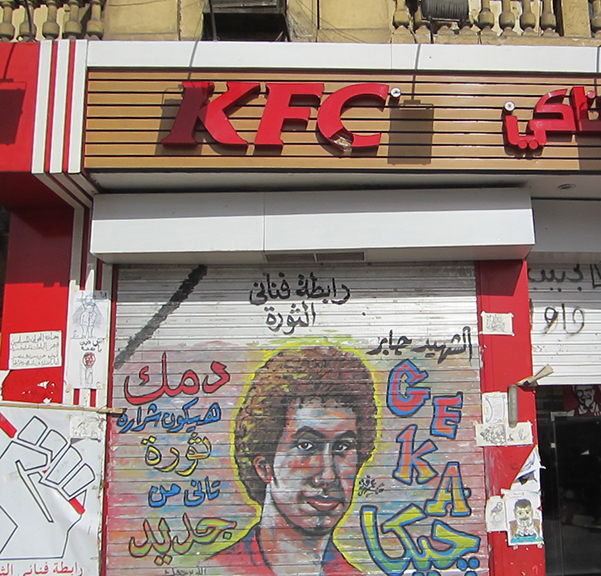 HUM 310-6: GLOBAL HUMANITIES LAB
HUM 310-6: GLOBAL HUMANITIES LAB
ART, POLITICS, PUBLICS--ISTANBUL AND CHICAGO
Professor: Jessica Winegar (Anthropology) September 9-16 and FQ TuTh 2:00-3:20
What is a public? What are the politics of constituting a public? How might this differ across time and space? This course explores how artists -- and indeed art itself -- work to create publics through politics of different scales. Students will be able to address these questions through actual experience of these different scalar politics, as we travel to the international Istanbul Biennial, visit nation-oriented museums in Istanbul and Chicago, engage with street art in Istanbul, Chicago, and Evanston, and engage in dialogue with artists in all three locations. We will complement this research with a range of interdisciplinary readings on how publics form in relationship to objects’ agency, human and non-human networks, space, media, social hierarchies, political projects, and institutions. Special attention will be paid to the relationship between arts and publics in the revolutionary movements linking the Middle East and the U.S. Ultimately, the course seeks to unsettle the definitions of art, politics, and the relationship between the two in this contemporary era of intensified global circulations and inequalities.
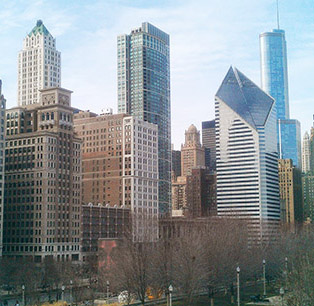 HUM 325-6: HUMANITIES IN THE DIGITAL AGE
HUM 325-6: HUMANITIES IN THE DIGITAL AGE
ANCIENT ROME IN CHICAGO
Professor Francesca Tataranni (Classics) M 3:00-5:30 (class) W 3:00-3:50 (lab); students must obtain the instructor's permission to enroll.
Although the ancient Romans never made it to the new world, their legacy in Chicago is reflected in architecture, the visual arts, and sites devoted to recreation, education, politics, and business. This class will journey to Chicago’s financial district, political and commercial core, cultural institutions, hotels, theaters, parks, schools, cemeteries, and ethnic neighborhoods. By walking the city, you will learn to “read” the streets, buildings, and monuments that showcase Chicago’s engagement with the classical past. You will also learn how to use digital tools and practices - such as video editing, data analysis, and digital mapping - to produce an innovative and collaborative virtual walking tour mapping Chicago’s ongoing dialogue with Roman antiquity.
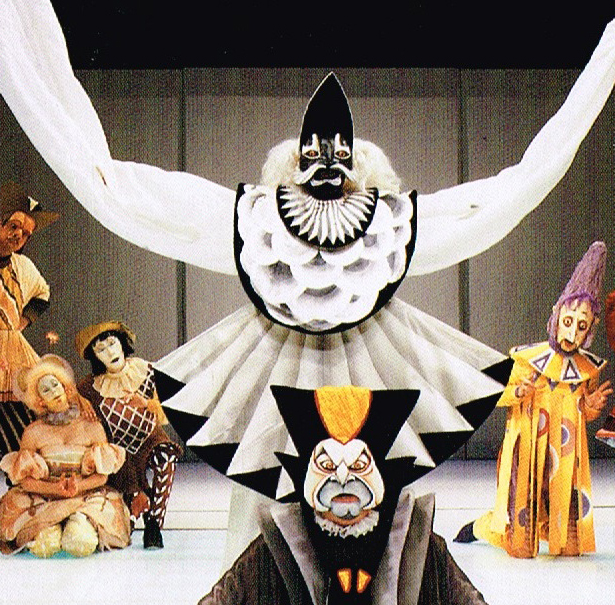 HUM 370-6: SPECIAL TOPICS IN THE HUMANITIES
HUM 370-6: SPECIAL TOPICS IN THE HUMANITIES
THE THEATRICAL DIRECTOR
Professor Dassia Posner (Theatre) MW 11-12:20 (this course is only open to sophomores, juniors and seniors)
This class examines the history of theatre in the twentieth century through the lens of theatrical performance rather than dramatic literature, beginning with the rise of the director as a “production author” at the turn of the last century and continuing to present-day directorial innovations. We will analyze several leading directors, ranging from Konstantin Stanislavsky to Julie Taymor, placing each in historical and artistic context and investigating how their theatrical theories have been applied in specific productions. Students will engage in intensive research projects on directors of their choice, experiment with production reconstruction, attend a local productionas a class, and approach theatre history from the point of view of performance analysis. No previous study of theatre history is necessary, though it is useful for students to have had previous coursework in theatre, dramatic literature, film, art, or music.
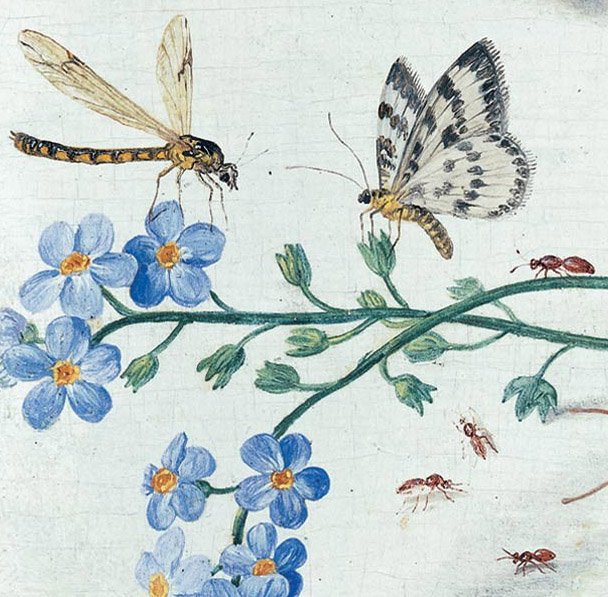
HUM 370-4: SPECIAL TOPICS IN THE HUMANITIES
BUGS, BOTANICALS, AND THE BRITISH EMPIRE - 1500-1850
Professor Sheila Wille (History, Environmental Policy, and Humanities) MW 12:30-1:50
From silkworms to breadfruit and wheat pests to sugar cane, the governance of insects and plants was the foundation of profit and power in Britain, as well as its Empire. The prominence and visibility of botany and entomology rose steadily between 1500 and 1850 in Britain, and eventually some practitioners would aspire to real and global political power. In this class, we will trace the connection between knowledge of nature and power through the periods of the scientific revolution, the enlightenment, and the Victorian Age.
THE MEASURE OF ALL THINGS: NUMBERS, SPACE, AND THE HUMANITIES
Professors: Wendy Espeland (Sociology), Jules Law (English) and Claudia Swan (Art History)
This course is only open to students in the Kaplan Humanities Scholars Program
